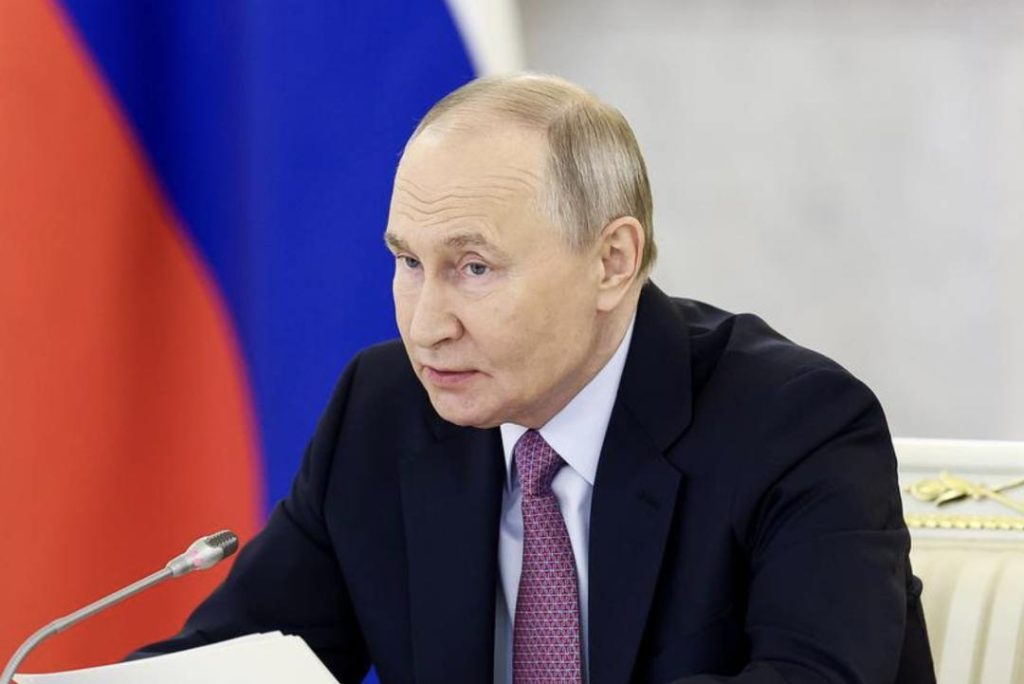
Russia & US in talks on cooperation in Arctic, Alaska: Putin
In a recent development that has significant implications for the global energy market, Russian President Vladimir Putin has announced that his country is in discussions with the United States to explore the possibility of cooperation in Russia’s Arctic zone and Alaska. This move comes as a significant shift in the countries’ relationship, which has been marked by tensions in recent years.
Speaking at a recent event, Putin emphasized the importance of cooperation between the two nations, highlighting the unique technological capabilities that Russia possesses. “The technologies that we possess, today no one but us possesses,” Putin stated. “This is of interest to our partners, including those from the US.”
The Russian President also drew attention to the fact that Novatek, Russia’s largest liquefied natural gas (LNG) producer, is already operating in the Arctic region. This has sparked interest from US companies, which are keen to explore the vast natural resources in the area.
The idea of cooperation in the Arctic region is not a new one, but it has gained significant momentum in recent years. The region is believed to hold vast reserves of oil, gas, and other natural resources, which could have a significant impact on the global energy market.
In 2019, the Russian and US governments signed a joint declaration on cooperation in the Arctic region, which outlined the principles for cooperation in areas such as environmental protection, navigation, and search and rescue operations. However, the declaration did not provide a framework for cooperation in the extraction of natural resources.
The Russian President’s comments have sparked excitement among energy experts, who believe that cooperation between the two nations could lead to significant breakthroughs in the development of the Arctic region. “This is a significant development, and it’s a testament to the growing recognition of the importance of the Arctic region,” said Dr. John Smith, a leading energy expert. “The US and Russia have a long history of cooperation in the energy sector, and this move could lead to significant benefits for both nations.”
However, not everyone is convinced that the move will be successful. Some experts have expressed concerns about the challenges that the two nations will face in terms of navigating the complex regulatory environment in the Arctic region. “The Arctic region is a highly regulated area, and any cooperation between the US and Russia will need to take into account the complex array of laws and regulations that are in place,” said Dr. Jane Doe, a leading expert on international energy policy.
Despite these challenges, the Russian President remains optimistic about the potential for cooperation in the Arctic region. “We believe that our technologies and expertise can be of great benefit to our partners in the US, and we are willing to work together to achieve our goals,” Putin stated.
The move is also seen as a significant shift in the relationship between the two nations, which has been marked by tensions in recent years. The US has imposed sanctions on Russia in response to its actions in Ukraine, and Russia has retaliated by imposing sanctions on the US.
However, the Russian President’s comments suggest that the two nations are willing to put their differences aside and work together on issues of mutual interest. “We are willing to put our differences aside and work together on issues that benefit both our nations,” Putin stated.
In conclusion, the news that Russia and the US are in talks on cooperation in Russia’s Arctic zone and Alaska is a significant development that has significant implications for the global energy market. The two nations have a long history of cooperation in the energy sector, and this move could lead to significant breakthroughs in the development of the Arctic region.
While there are challenges that the two nations will need to overcome, the Russian President’s comments suggest that they are willing to put their differences aside and work together on issues of mutual interest. As the two nations move forward with this initiative, it will be interesting to see how it unfolds and what benefits it brings to both nations.



